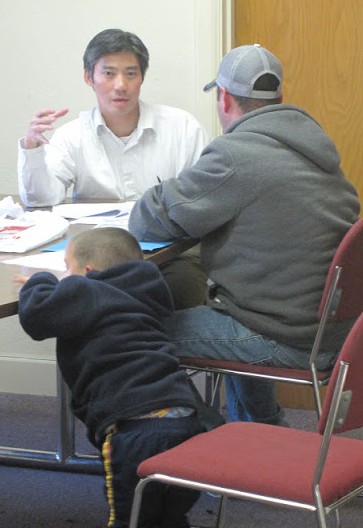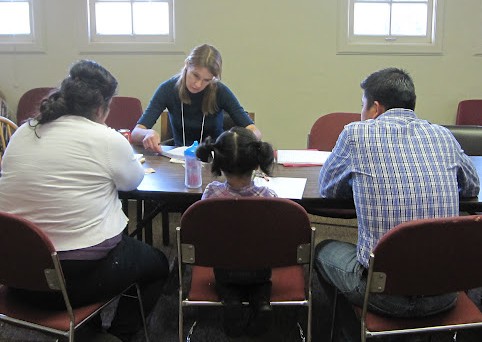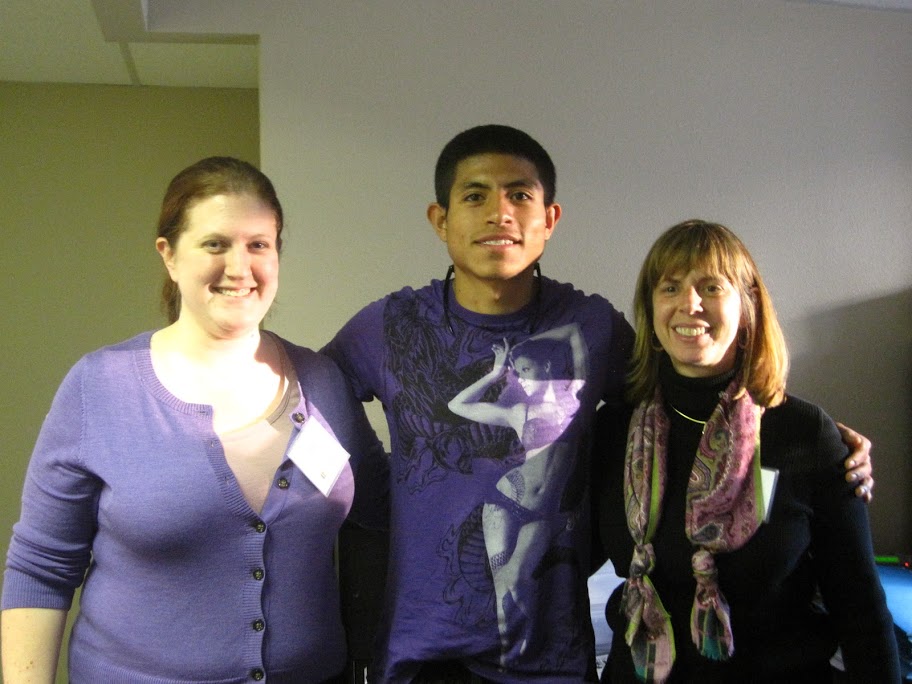Removing barriers to justice takes a network. . . of law students and law schools!
OneJustice supports a network of 100+ nonprofit legal organizations, law firms, law schools, and businesses. Each year this network provides life-saving legal help to over 275,000 Californians facing legal barriers to basic life necessities and core civil rights. You – like everyone in our network – are an essential part of the solution to the fact that millions of our neighbors suffer needlessly from solvable legal problems.
In honor of the work that our network does, each month we feature an interview with a different participant in the network. This month we interviewed Leeor Neta, Director for Public Interest Programs at Golden Gate University School of Law.
——————————————————————————————-
Leeor, you are involved in supporting and expanding law students’ interest in public services, pro bono and public interest work. How do you approach that work, and how does your approach also inform your work with OneJustice? 
While I have numerous responsibilities at Golden Gate, I am thankful that I am not “expanding student interest in public services.” Every student at Golden Gate—whether they want to pursue a public interest career or prefer the private sector—cares about public service.
That is not my experience of most law students. Few of my law school classmates were committed to pursuing a public interest career and the Career Services Office offered little direction to us. We had to work harder than other students to find opportunities. After graduation, I worked at the Office of the State Public Defender, where I assisted in the direct appeal of death penalty convictions on behalf of indigent clients. Later, I founded the City of East Palo Alto’s first juvenile diversion program and served for two years as its Executive Director.
I came to Golden Gate because I wanted to have a stake in mentoring the next generation of public interest leaders. Golden Gate’s partnership with OneJustice has been invaluable. OneJustice helps me take our very passionate students and connect them with projects and programs, about which they might not otherwise hear. And we do that at the very beginning of their law school tenure. As a result, students more quickly identify what motivates them and are more likely to stay the course to a public interest career.
Please tell us a little bit about how Golden Gate University School of Law approaches public interest, public service, and pro bono.
Golden Gate is consistently ranked one of the best public interest law schools in the country. Golden Gate owes this reputation to several factors. Golden Gate’s curriculum—including many first-year offerings—extends to every area of public interest law. Golden Gate supports a formidable externship program (ranked third in the nation in a 2010 study by Professor James Backman of Brigham Young University). Most Golden Gate students participate in this program and obtain hands-on public interest law-related experience. Many of Golden Gate’s faculty are renowned public interest leaders. Likewise, Golden Gate’s clinics and centers all focus on public interest issues. Golden Gate is home to many student organizations that create a community deeply committed to public service. Golden Gate devotes an enormous amount of money to grants and scholarships for its students.
Golden Gate also has an abiding to commitment to pro bono and making pro bono opportunities easily available. In fact, Golden Gate was one of the first schools to forge a partnership with OneJustice. Annually, OneJustice counsels hundreds of our law students. Most of these students receive OneJustice’s newsletter and actively participate in the projects promoted by OneJustice. I cannot imagine Golden Gate keeping its commitment to its public interest students without its partnership with OneJustice.
What have you particularly enjoyed about working with OneJustice?
I really enjoy working with the OneJustice staff. Everyone—including Michael Winn, Linda Kim, Thieu Do, and of course, Julia Wilson—is not only hard working and committed, but also gracious and accommodating. This semester, a speaker for a public interest event cancelled on me at the last minute. I called Michael and asked him to fill in. He immediately agreed and ended up being a huge hit with the audience. At every event, OneJustice staff are arriving early, staying late, building relationships with employers and students. They are champions for social justice, and I am proud to call them my colleagues. [Editor’s note from the OneJustice team: Yes, we are all blushing now. Thank you Leeor! The feeling is completely mutual!]

Golden Gate law students volunteer with the Justice Bus Project to bring free legal help to Californians living in isolated areas of the state.
Which project with OneJustice is most exciting to you for 2013?
I personally enjoy coordinating the Northern California Public Interest / Public Sector Day. OneJustice does an outstanding job overseeing this event with its many component parts. I also love greeting nearly all of my public interest colleagues at the same time.
But the project that I think our students have most enjoyed is the Justice Bus trips. Being based in the San Francisco area, it’s not hard for our students to forget that there are many people facing dire legal problems in rural and more far-flung parts of the state. Joining a Justice Bus trip gives them the chance to shift their immediate world view and learn about problems and opportunities in places like Watsonville, Marysville, and others.






